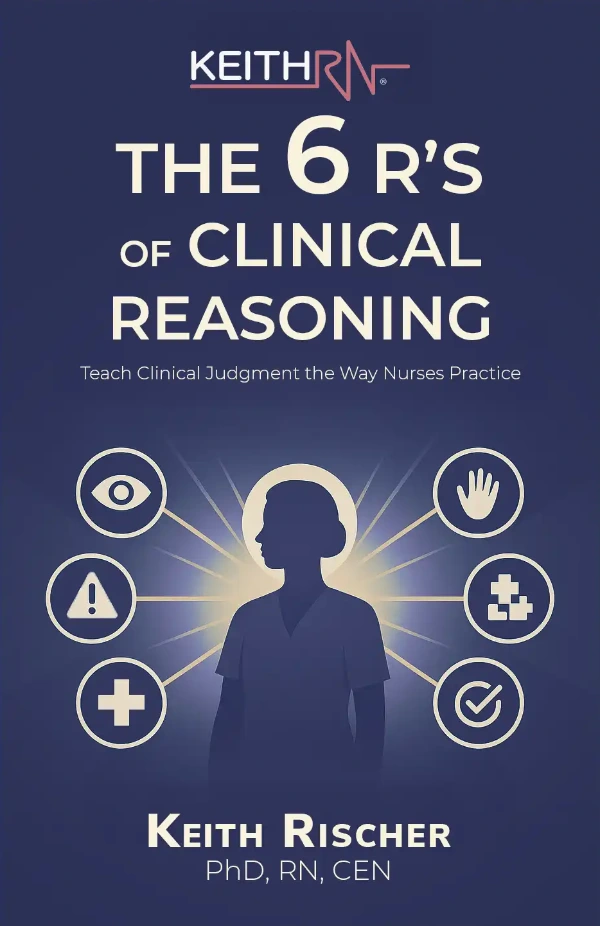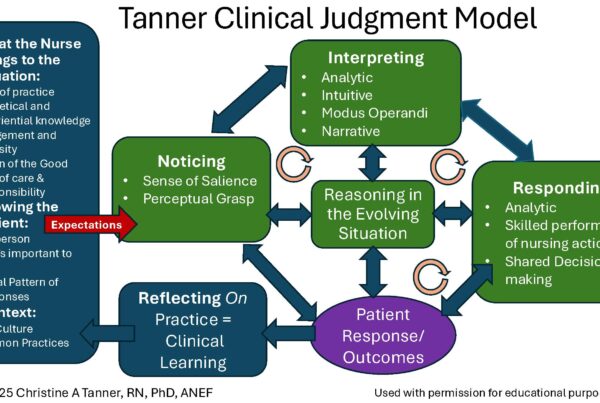
A recent conversation in our Teachers Transforming Nursing Education Facebook group struck a deep nerve—and we can’t afford to ignore it.
The Situation
Theresa asked: “Curious as to the different ways you’ve caught students cheating on computerized exams given in person with a faculty proctor.”
Faculty responded with alarming examples of cheating—students paying others to take online tests, hiding cheat notes, using phones and AI tools, or taking bathroom breaks to search for answers. One educator summed it up powerfully:
“This is such a horrific problem! The cheating behavior is only the surface! Ethically, it is disturbing that students would cheat their way through nursing school, and once they are registered nurses, they are responsible for making critical, life saving decisions. I cringe to think they would be responsible for caring for one of my loved ones.”
Why It Matters
When academic integrity erodes, it threatens the very foundation of our profession. Research shows that students who engage in academic dishonesty are more likely to engage in professional misconduct. Let that sink in.
The same student who cheats on an exam today could be the nurse who makes a fatal error tomorrow. It’s a reality none of us want to be responsible for.
This isn’t about one student’s actions. It’s about how we, as educators, equip our students to embody the professional identity of a nurse through our curricula and mentorship.
These students may pass the NCLEX, but do they have the clinical judgment, ethical grounding, and accountability to safely care for patients?
How can we reform nursing education to develop not only students who think like nurses, but who also care, act, and live with the ethical integrity our profession demands?
My favorite football coach, Dabo Swinney, often says that his most important job isn’t just preparing great football players—it’s preparing great men. He prioritizes developing character, values, and integrity as much as athletic skill.
If a college football coach sees building ethical, value-driven individuals as central to his mission, shouldn’t we, as nurse educators, be doing even more?
We’re not just preparing students to pass exams—we’re preparing them to make life-and-death decisions, serve with compassion, and uphold the integrity of a profession that depends on trust. It’s time we place as much emphasis on cultivating strong ethics and professional values as we do on teaching clinical skills.
Together, we can build a future where nurses are prepared for both licensure and life-saving practice.
Join the Discussion! What do you think? Read and respond to the post in the Teachers Transforming Nursing Education Facebook group.
Next Step
Want ready-to-use tools to help you lead this needed change? Our Think Like a Nurse Membership includes:
- A faculty module on Academic Misconduct
- A student Professional Identity Contract
- Real-world ethical dilemma case studies to make professional identity stick!
These aren’t just resources—they’re catalysts for change. Learn more.
Maria Flores-Harris, DNP, RN, CNE
Dr. Flores-Harris, Nurse Educator Consultant for KeithRN, is an accomplished registered nurse with experience in clinical, academic, and business settings. She received her Bachelor’s of Science and Master’s of Science in Nursing with a Geriatric Nurse Practitioner focus from Clemson University. She remains loyal to her Clemson Tigers! Read more…
The Ultimate Solution to Develop Clinical Judgment Skills
KeithRN’s Think Like a Nurse Membership
Access exclusive active learning resources for faculty and students, including KeithRN Case Studies, making it your go-to resource.






